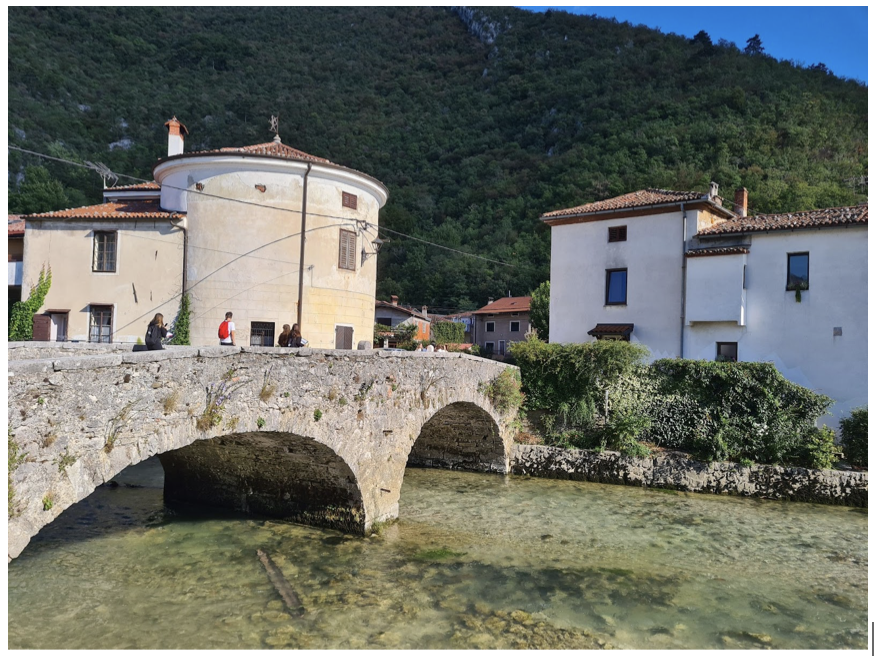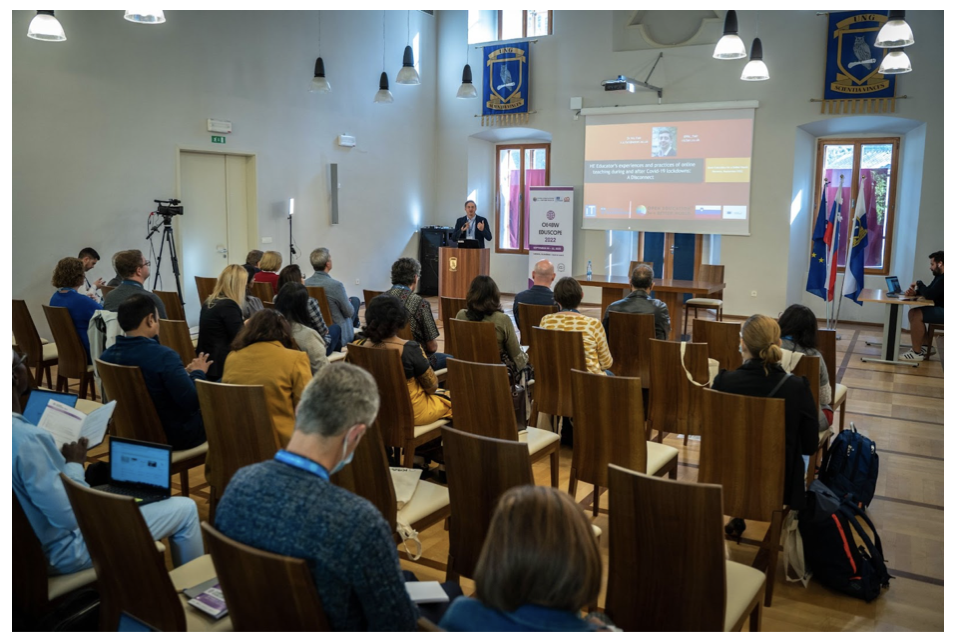In September 2022, the BRIDGES team had the privilege to collocate their second project management meeting with the Open Education for a Better World (OE4BW) conference hosted by Nova Gorica University and the BRIDGES partner Institute Josef Stefan in Vipava, a beautiful Slovenian town splattered with beautiful bridges.

Bridge on the Vipava river, next to Nova Gorica University
The EDUSCOPE OE4BW conference
The University of Nova Gorica (https://www.ung.si/en/university/) and the UNESCO Chair of Open Technologies for OER and Open Learning(https://ct3.ijs.si/chair/) at the Jožef Stefan Institute(https://ijs.si/ijsw/V001/JSI) successfully organized the Open Education for a Better World Eduscope 2022 https://oe4bw.miteam.si/asset/22C35FLhd8q3quPj9).
The event took place from 20 to 22 September 2022. It was organized in a hybrid format and was attended by over 200 participants (in-person and online). OER projects developed through the 2022 OE4BW Mentoring Programme (https://oe4bw.org/) were presented with short pitches. The event was co-located with the Online Learning Symposium: “Bridging Educational Emergency to Digital Pedagogies”, where research and experience track papers on several topics referring to digital pedagogical practices were presented. Keynote speakers on the role of Open Education in Emergencies like COVID-19, Best practices in open pedagogy, Open Education and inclusive knowledge society – Leadership and Language Issues, Open Source Authoring Tools to Create Open Educational Resources, Visual Communication Technologies and Their Applications in Education.

Some of the Eduscope OE4BW conference in the University of Nova Gorica, Vipava campus
The BRIDGES symposium
The BRIDGES project hosted a track within the OE4BW conference in which the challenges of bridging Emergency Remote Teaching to Online Learning were (world-)widely discussed. Chaired by members of the BRIDGES consortium, 21 research and experience papers were presented in scope of 5 sessions. Selected papers about the presentations will be published in the Scopus-indexed CEUR Proceedings.
The BRIDGES keynote
Dr. Nic Fair from University of Southampton presented the BRIDGES project titled “HE Educators’ experiences and practices of online teaching during and after COVID-19 lockdowns: A Disconnect. The Keynote focused on the results of the interviews and survey among 403 High Education (HE) Educators from 12 Countries among which 4 were non-EU.
The research showed that the HE educators are networked learners, however the HE educator knowledge and experience of digital theories, pedagogies, approaches and learning design is low. Further, formal HE training does not adequately cover digital theories, pedagogies, approaches and learning design and is not highly valued by educators. What is more, HE online teaching is not networked and does not make use of digital theories, pedagogies, approaches, learning design and online tools. The overall conclusion of the research has been that there is a disconnect between how HE educators learn for themselves and how they teach online and that is not being addressed through formal learning and support.
Overall, the keynote sparked very interesting discussions and the possibility of research collaborations in Africa, India and South America.

Dr. Nic Fair presents the results of the BRIDGES survey
The multiplier effect
Classed as a multiplier event, the BRIDGES symposium had the intended multiplier effect in two directions. The BRIDGES project was disseminated among a great deal of relevant practitioners, including UNESCO chairs for Open Education, many of which volunteered for sharing resources later on in the BRIDGES hub. Many other practitioners benefited from the BRIDGES research outputs, and the BRIDGES survey will be circulated in contexts beyond the European borders. Also in the opposite direction, the BRIDGES consortium gathered a great deal of insights and potential educational resources for the BRIDGES MOOC and hub, where practitioners around Europe and beyond will be able to share insights, resources and best practices about the transition from Emergency Remote Teaching to Online Learning.

Comentarios recientes